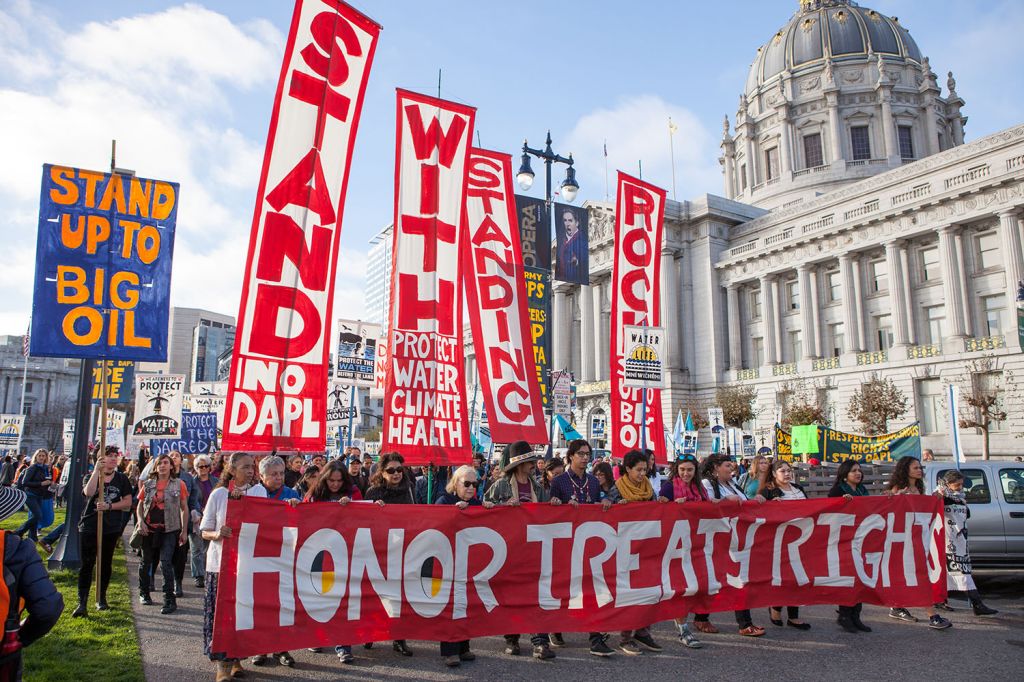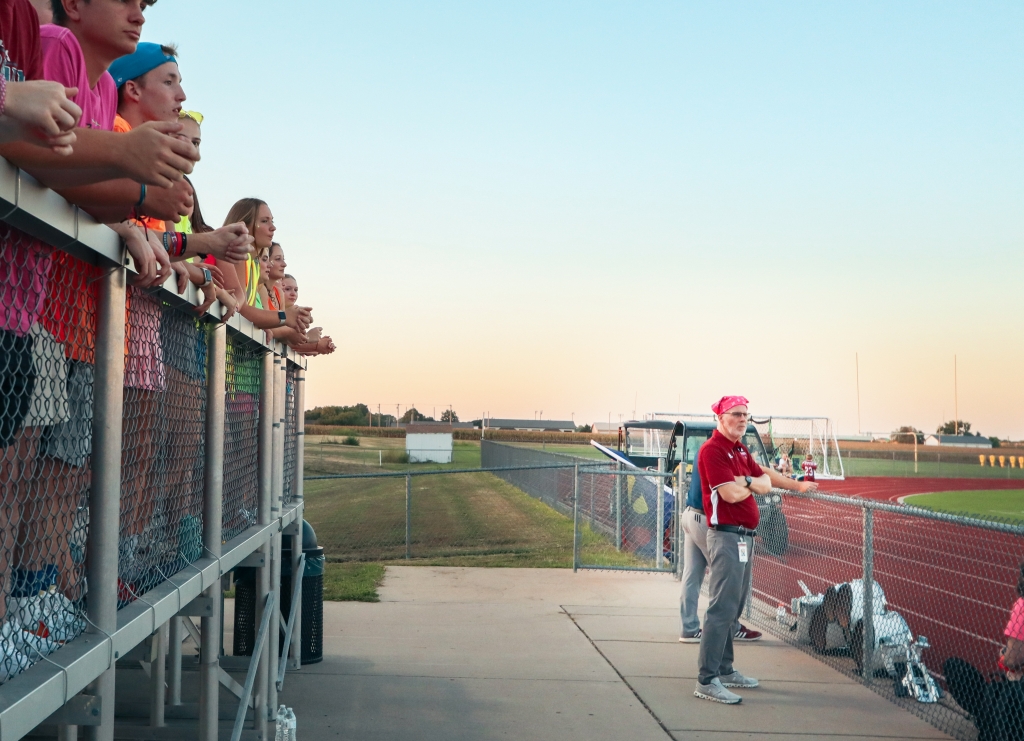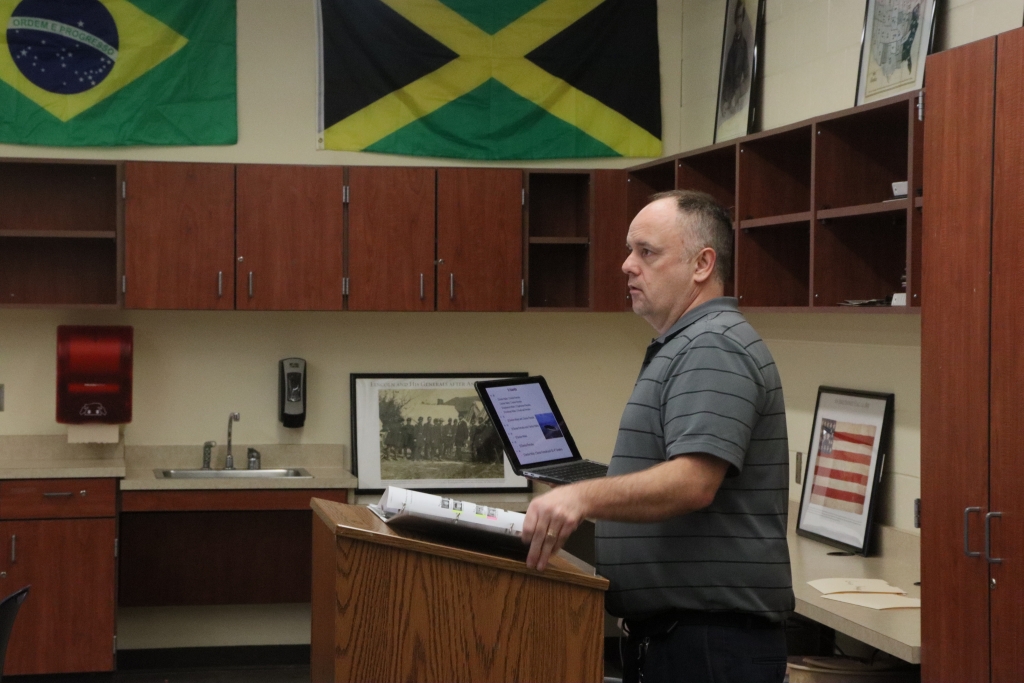Standing with standing rock

story by Breyanna Helm
Imagine being pepper sprayed by police for standing up against something you believe is wrong. Or, visualize getting arrested for standing with people who are determined fight against this project. People around the world have come together to fight the Dakota Access Pipeline Project either in support of their culture or simply to support the cause.
The project was started early this year. The Dakota Access Pipeline is a 1,172-mile, 30-inch diameter pipeline that will connect the rapidly expanding Bakken and Three Forks oil production areas in North Dakota to Patoka, Illinois. The pipeline will enable domestically produced crude oil from North Dakota to reach a major refining market in a more cost-effective, safer manner. The pipeline will also reduce the current use of rail and truck transportation. For local economic impact, the Dakota Access Pipeline was projected to create 8,000 to 12,000 local jobs during construction.
The United Stated is the third-largest producer in the world, but we are the number one consumer of crude oil. They are doing this because they want to close the gap between what we produce as a country and what we consume in order to become independent of foreign imports.
Many people are protesting against the pipeline because it will be running near the Standing Rock Indian Reservation, which is the sixth-largest reservation in the United States and fear that if the pipeline breaks their only water supply will be destroyed. A gathering of people in the areas has continued to grow in size over the course of these protests. This peaceful protest camp, according to Yes magazine, was founded by LaDonna Brave Bull Allard on April 1, 2016 and is a center for cultural preservation and spiritual resistance to the Pipeline that threatens the only water supply for the Standing Rock Reservation.
On Sept. 3 2016 bulldozers bulldozed a section of land the tribe had identified as sacred ground in an amendment to the federal injunction a day earlier. This resulted in security workers, in riot gear, using attack dogs which injured six people, in just clothing, and one horse. Protesters have been arrested, beaten, and pushed back against by police.
“I think the government should be handling this differently,” said Jenna Abram, Sr. “I think that they could set rules for both protesters and law enforcement. Like boundaries on how far they can go and how dramatically they fight back.” According to Mintpress News, police officials have declined to comment on their return from North Dakota or their feelings on what’s happening there. This has also made the task of rebuilding trust with the community an even loftier uphill battle.
Julee Cobell, Sr., who is of Indian heritage, feels strongly against the Dakota Access Pipeline Project.
“Personally, I think this is horrible how the police are treating the Natives who are standing up for what they believe in,” Cobell said. “The police are using excessive force to hold back protesters, injuring multiple people.
“The police have pepper sprayed and have had vicious dogs biting adults and kids. This is a peaceful protest and the police are treating them like prisoners,” Cobell said, objecting to how things are being handled by the government. “Our own government is fighting with the citizens and are not thinking about their water supply, just how much money they would get out of this.”







